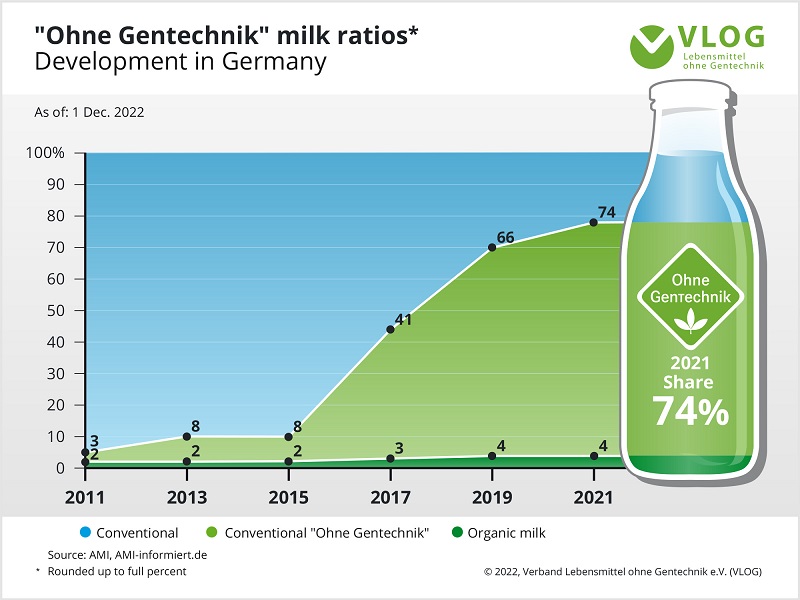Press
Almost 80 percent of milk in Germany is GMO-free
From niche product to standard
This means, in just one decade, GMO-free milk has largely gone from being a niche product to becoming the standard. Most milk packs on supermarket shelves are now labelled with the "Ohne GenTechnik" (Non-GMO) seal.
Genetic engineering regulations must be preserved
"People want to know how their food is produced. Most people reject genetic engineering in the glass and on the plate. The 'Ohne GenTechnik' seal helps to fulfill the customers' desire for transparency and freedom of choice," comments Alexander Hissting, Managing Director of the Association for Food without Genetic Engineering (Verband Lebensmittel ohne Gentechnik - VLOG). "In order for us to be able to continue to reliably guarantee GMO-free milk, the proven GMO regulations must be preserved. We are counting on German Agriculture Minister Cem Özdemir to oppose their erosion at EU level in 2023."
Labelling gap and GMO-free animal feed
In the case of milk and other food of animal origin, "Ohne Gentechnik" means above all that they have been produced without genetically modified animal feed. This use of genetic engineering, which is common in practice, does not require labelling by law. The "Ohne GenTechnik" label closes this labelling gap. Consumers can thus decide directly at the supermarket shelf against environmentally harmful GM soybean cultivation.
In 2021, 74 percent of milk in Germany was produced according to the VLOG "Ohne Gentechnik" Standard, and another 4.3 percent was organic milk, which likewise excludes the use of genetically modified animal feed, making a total of 78.3 percent of milk GMO-free. The figures were calculated by the Agrarmarkt Informations-Gesellschaft AMI (Agricultural Market Information Company) on behalf of VLOG, details can be found in the chart and table.

